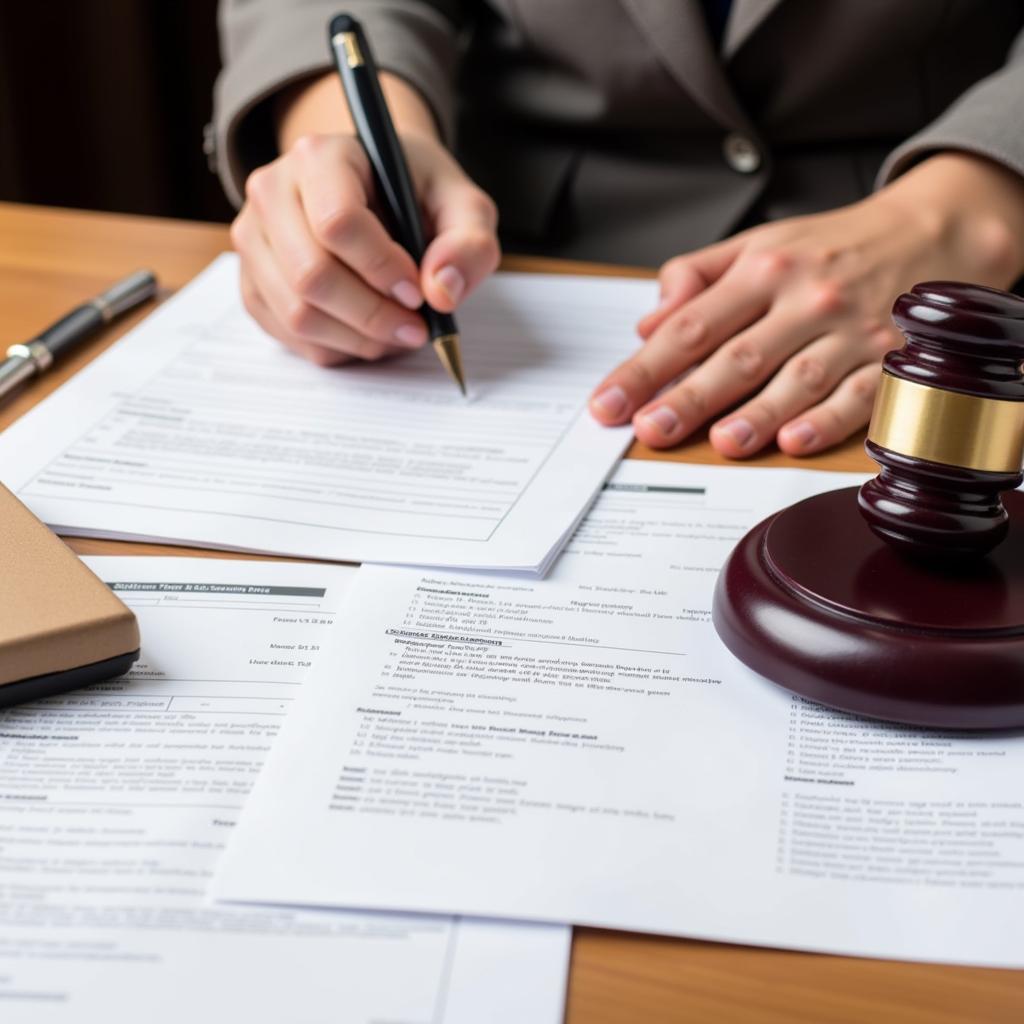African Court on Human and Peoples’ Rights – Rules of Procedure
The African Court on Human and Peoples’ Rights-Rules of Procedure are essential for understanding how the court operates. These rules govern the proceedings, ensuring fairness and efficiency in handling human rights cases across the African continent. They provide a framework for individuals and states to seek redress for human rights violations.
Understanding the African Court’s Rules of Procedure
The Rules of Procedure are the backbone of the African Court on Human and Peoples’ Rights. They dictate how applications are filed, how evidence is presented, and how judgments are delivered. A thorough understanding of these rules is crucial for anyone seeking to engage with the court, whether as an applicant, a respondent, or an observer. These rules ensure transparency and provide a clear roadmap for navigating the court’s processes.
Key Aspects of the African Court on Human and Peoples’ Rights – Rules of Procedure
Several key aspects define the African Court’s Rules of Procedure. These include admissibility criteria for applications, the process of serving notices, and the conduct of hearings. The rules also address issues like the appointment of experts and the handling of evidence. Understanding these key aspects is paramount for effectively utilizing the court’s mechanisms.
The rules detail the steps involved in filing an application, including the required documentation and the deadlines that must be met. They also outline the rights and responsibilities of the parties involved in a case. This structured approach ensures that all parties are treated fairly and that the court can effectively address the human rights issues presented.
 African Court Application Process
African Court Application Process
Navigating the complexities of the African Court Rules
The Rules of Procedure can be complex, particularly for those unfamiliar with legal processes. However, resources are available to assist individuals and organizations in navigating these complexities. The African Court provides guidance documents and FAQs to clarify the rules and answer common questions. Furthermore, several NGOs and legal experts offer support and assistance to those seeking to engage with the court.
One crucial aspect is the requirement for exhaustion of local remedies before applying to the African Court. This means that applicants must first pursue all available legal avenues within their own countries before seeking redress at the continental level. This requirement is designed to strengthen national legal systems and to ensure that the African Court addresses only those cases where domestic remedies have been exhausted.
Admissibility Criteria and the Application Process
Understanding the admissibility criteria is essential for any potential applicant. The application must clearly demonstrate a violation of a right protected under the African Charter on Human and Peoples’ Rights. It must also be submitted within a specific timeframe and meet other procedural requirements.
The rules outline specific criteria that applications must meet to be considered admissible by the court. These include the requirement that the application be compatible with the Charter, that it not be anonymous, and that it not be based solely on news reports. Understanding these criteria is essential for ensuring that an application has the best chance of being accepted.
Importance of Legal Representation
While legal representation is not mandatory, it’s highly recommended. A lawyer specializing in human rights law can provide invaluable assistance in navigating the complex legal procedures and ensuring that all necessary documentation is properly prepared and submitted.
 African Court Legal Representation
African Court Legal Representation
Conclusion
The African Court on Human and Peoples’ Rights-Rules of Procedure are crucial for upholding human rights across Africa. By understanding these rules, individuals and states can effectively utilize the court’s mechanisms to seek justice and accountability for human rights violations. Familiarizing oneself with these procedures is the first step towards ensuring that the court can fulfill its mandate of protecting human rights and promoting justice throughout the continent.
FAQ
- What are the main objectives of the African Court’s Rules of Procedure? (To ensure fair and efficient handling of human rights cases.)
- Where can I find the official version of the Rules of Procedure? (On the African Court’s website.)
- Do I need a lawyer to file an application with the African Court? (While not mandatory, legal representation is highly recommended.)
- What is the principle of exhaustion of local remedies? (Applicants must exhaust all legal avenues in their own countries before applying to the African Court.)
- What happens after an application is deemed admissible? (The Court initiates proceedings, which may include hearings and investigations.)
- Can individuals file complaints against states? (Yes, individuals and NGOs can file applications against states that have ratified the African Charter.)
- What types of remedies can the African Court order? (Remedies can include compensation, restitution, and guarantees of non-repetition.)
Need assistance with the African Court on Human and Peoples’ Rights-Rules of Procedure? Contact us! Phone: +255768904061, Email: kaka.mag@gmail.com, or visit us at Mbarali DC Mawindi, Kangaga, Tanzania. Our customer service team is available 24/7.


